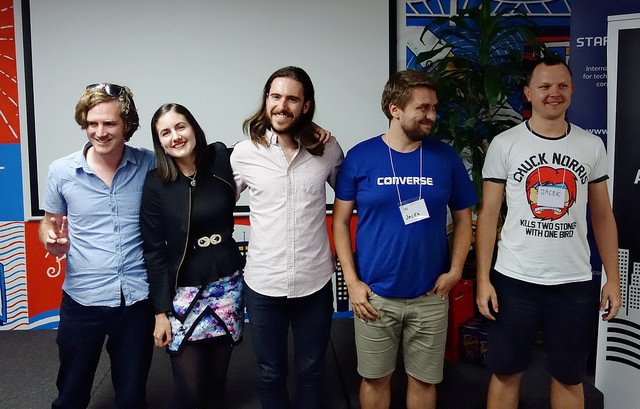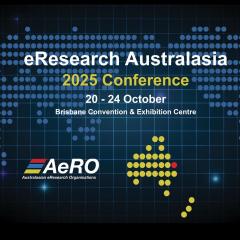
With growing fears globally about antibiotic resistance, the winners of this year’s Brisbane HealthHack have created a badly needed tool.
Team ‘Super Friends Against Super Bugs’ developed an app’ for real-time tracking of antibiotic resistant bacteria during the RCC co-sponsored data hack weekend across 14–16 October.
During the hack, RCC supported the Super Bugs team with the deployment of servers and software.
This was the second year running that members of UQ’s Institute of Molecular Bioscience (IMB) proposed the research problem that won Brisbane HealthHack’s first prize.
Overall, eight of the 12 pitches made at the start of the event, about solving medical and health research problems, came from UQ or UQ associated researchers. The UQ problems were very diverse, coming from IMB, the Faculty of Economics, School of Medicine, Australian Institute for Bioengineering and Nanotechnology, and the School of Public Health.
RCC/IMB/QCIF eResearch Analyst Dr Nick Hamilton, a problem wrangler and coordinator for Brisbane HealthHack, said: “It’s great to see so many UQ individuals and groups making links with health and IT professionals across the state to help create solutions to their research health problems.”
About 70 people participated in the data hack weekend, held at Brisbane’s River City Labs, including researchers, software developers, user experience (UX) designers, data analysts and visualisers.
Judging honours went to Prof. Jenny Martin, Director of Griffith University’s Eskitis Institute for Drug Discovery; Kaisu Christie, Head of Digital and Innovation at the Bank of Queensland; Mathilde Desselle, Marketing and Outreach Program Coordinator at the UQ-based Community for Open Antimicrobial Drug Discovery; and Tegwen Howell, Research Support Manager at the Emergency Medicine Foundation.
The judges awarded second place to team ‘Jazz Hands’ for its project (run jointly between the simultaneously held Brisbane and Perth HealthHacks), ‘Helping the Deaf Enjoy a Cinema Experience.’
Team ‘Saving Grandpa’ took third place with its project, ‘A more efficient database for cardiology patient management.’
The ‘Supreme Coder’ award went to Thea Koutsoukis who learned a new programming language in order to solve the ‘Saving Grandpa’ problem. Thea works at Suncorp and has previously contributed to other RCC-hosted training and coding events, such as the Mozilla Global Sprint.
Team ‘Saving Grandpa’ will soon meet with IT professionals from Queensland Health about integrating their solution into the hospital system.
Last year, the projects awarded first and second place at Brisbane HealthHack went on to gain substantial funding to develop the solutions further.
Members of the Super Bugs team have already met and had very positive discussions with a potential international investor.
“Overall many of the judges, mentors and participants commented on the very high quality of all the problems proposed this year and the astonishing progress that had been made on them over only 24 hours,” said Dr Hamilton. “It came as a revelation to many what could be done in that time, and several participants commented on how it had inspired them to decide to initiate their own coding projects after the HealthHack.”
Sydney, Melbourne, Canberra and Perth hosted HealthHack weekends simultaneously with Brisbane. See the HealthHack website for further information about the problems the teams worked on this year.



